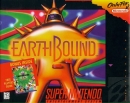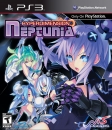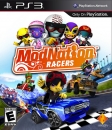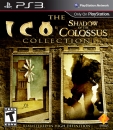richardhutnik said:
What REALLY irritates me is that people expect game, which is an interactive form of entertainment, to morph itself into a device for telling stories (story being historically a passive medium for communicating with a listener, reader or viewer), and expecting it to be EASY. It isn't easy. Games aren't intended to be devices to tell stories,. Oh, they CAN be used like that, but the benchmark for a great game is NOT that it has a great story. The benchmark is how well it plays. A game scores points if it can tell a story. But, I will assure you the videogame industry is going to bankrupt itself if it feels it HAS to compete with Hollywood, TV and the book industry, to be a medium for telling the best stories. It will not only drive up its current costs, but throw into it the entire array of what is needed to make a movie work, and add that to it. Soon, the arms race to make storytelling the TOP element, will cause games to average a cost of $100+ million to make.
Anyone here think the videogame industry will survive if perceived demands of what is needed to make a game that sells, drives the costs to $100+ million? The surest way is to cause the videogame industry to fold is to require it get into the movie making business, and have costs to match. But if you don't push for the top voice talent, director and so on, expect then the production value to be less.
This being said, a reason why you get bad stories is that the talent isn't there to use the medium to actually TELL a story. People don't have the skills, so you get the likes of Kojima producing what FEELS like a blockbuster, but is a mess in regards to the actual story, with memorable points that don't fit togeter as a whole.
|
Good points. I particularly agree that the issue is that:
one, videogames aren't necessarily the best medium for to convey a traditional narrative and explore characters - I think it may need to be accepted they will never equal say films or novels. In fact, while I love films I'm not sure films have even equalled the capabilities of novels, for example, so I don't know why people suddenly think games are suddenly going to be great at this
two, if you're a great writer why would you work in videogames? Why aren't you writing a novel, or a script? The answer is you are. Some games have had some very good writing, but for the most part it's fairly amatuerish, the work of to be honest mainly low level talent, because the best talaent is normally working in other mediums. Is David Cage the equal of a David Mamet, for example? I don't think so. Actually, I know he's not. On that note I will be interested to see how Crysis 2 turns out, as they've hired an actual writer of what appear to be fairly decent SF novels - and a fairly vocal writer at that!
On the topic of the article, I'd disagree about Half Life 2 particularly - as it features:
a) pretty good writing, particularly for Dr Breem and his broadcasts
b) a better approach for games - which is subtle, visual cues that you can either pick up or not as you wish - vs sub-cinema cut-scenes and C movie plot points
c) a deliberate lack of traditional narrative/character development (which games struggle at TBH) vs simply allowing you, a mute character, to observe everything you need to understand what's going on via interaction. HL2 recognizes, I believe, the limitations on developing characters in a videogame vs the reality its' you sitting on the couch experiencing the game through the eyes of an on-screen Avatar. The whole game is designed around knowing it's you sitting experiencing it, listening to Alex and others talk to you, noting the lowered water levels, seeing the police state operate around you, etc. and it knows that you (and Gordon) aren't going to develop as a character because that's not what the goal is nor even anything being attempted. Instead, you're going to experience an amazing adventure, in real time, played out right before you in a consistent and logical world
d) a non interrupted narrative (obviously not every game should be like this) where HL2 in a sense plays out in real time - i.e. you don't have a cutscene jumping from point A to point B : you're there, in the world, and you have to actually get yourself from point A to point B
I still find HL2 far more 'real' and immersive than any number of games since, and note that it actually manages, by keeping it simple and not trying to be anything other than a great game, to avoid plot holes, weak characters and all the usual cliches of a videogame story. I think the author of the article has missed the point of how HL2 is constructed and what it sets out to do - which is put you in an on-going situation but not to tell a traditional narrative with lots of dialogue and character development.


























































